Filter by
Sedatives For Dogs
Sedatives for dogs are prescription-only medications used to promote feelings of relaxation, reduce anxiety, and help calm nervous dogs.
-

Apoquel (Rx)
$3.19 / unit
Multiple options available
-

Gabapentin (Rx)
$0.28 / unit
Multiple options available
-
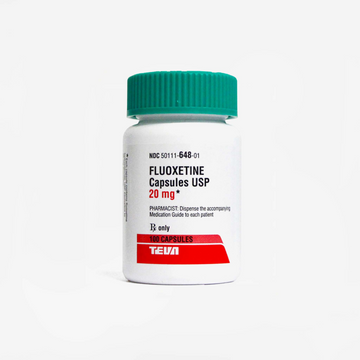
Fluoxetine (Rx)
$0.22 / unit
Multiple options available
-

Trazodone (Rx)
$0.30 / unit
Multiple options available
-

Bravecto for Dogs - 12-week dose (Rx)
$70.89 / unit
20% off for a limited time Use code FLEATICK20Multiple options available
-

Carprofen (Rx)
$0.30 / unit
Multiple options available
-

Mometamax Otic Suspension (Rx)
$38.84 / unit
Multiple options available
-

Apoquel Chewable (Rx)
$3.07 / unit
Multiple options available
-

Prednisone (Rx)
$0.22 / unit
Multiple options available
-

Cefpodoxime (Rx)
$1.70 / unit
Multiple options available
-

Clavamox (chewable tablet) (Rx)
$0.85 / unit
Multiple options available
-

Clavamox (suspension) (Rx)
$41.99 / unit
-

Cephalexin (Rx)
$0.50 / unit
Multiple options available
-
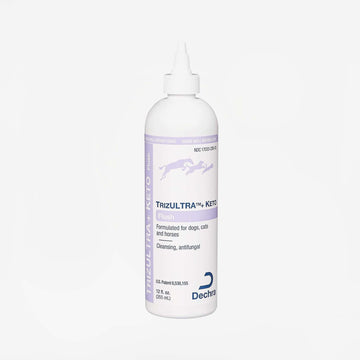
TrizULTRA + Keto Flush
$37.23 / unit
-

Credelio - 3 months (Rx)
$74.28 / unit
20% off for a limited time Use code FLEATICK20Multiple options available
-
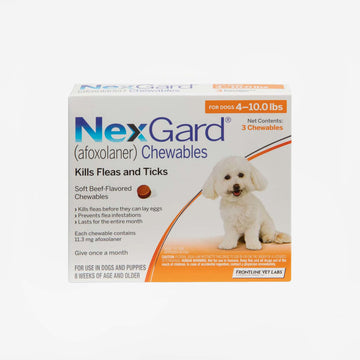
NexGard Chewables - 3 Months (Rx)
$86.19 / unit
20% off for a limited time Use code FLEATICK20Multiple options available
-
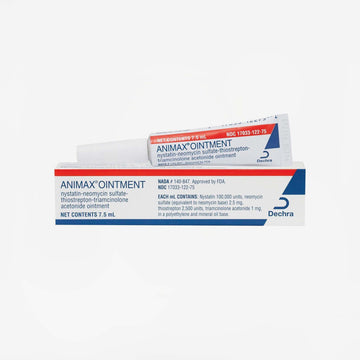
Animax Ointment (Rx)
$15.49 / unit
Multiple options available
-

Simparica Trio – 6 months (Rx)
$183.04 / unit
20% off for a limited time Use code FLEATICK20Multiple options available
-

Prednisolone (Rx)
$0.25 / unit
Multiple options available
-
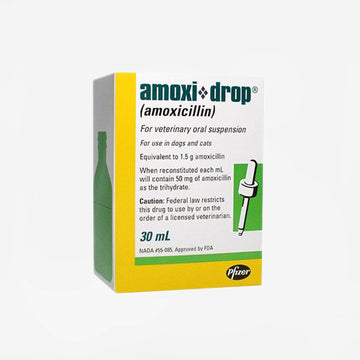
Amoxi-Drop 50 mg/ml Oral Suspension (Rx)
$20.01 / unit
Frequently asked questions
What medications are used as sedatives for dogs?
What medications are used as sedatives for dogs?
There are a range of medications on the market that can be used as sedatives for dogs. These include:
- Trazodone: This dog sedative increases serotonin in your dog’s brain, promoting feelings of calmness and relaxation. It’s a fast-acting medication that can be used according to vet instructions in stressful situations.
- Acepromazine: Acepromazine is a dog sedative that slows your dog’s central nervous system. It promotes muscle relaxation and slows down your dog’s central nervous system.
You should always talk to a veterinarian before giving your dog a sedative and only administer it according to veterinary instruction. Never give your dog a prescription sedative that isn’t prescribed to them.
What do dogs feel when sedated?
What do dogs feel when sedated?
Sedation medication for dogs calm your dog’s nervous system and help them feel calm and relaxed. Depending on the type of sedative your dog takes, their feelings can differ. They may experience drowsiness and ataxia (lack of coordination), or they may simply experience a reduction in anxiety and excitement.
What is the best thing to give a dog for anxiety?
What is the best thing to give a dog for anxiety?
Sedative drugs for dogs are typically only designed for temporary use, not made to be taken daily. These medications can be strong and may have adverse effects if used daily. If your dog experiences regular anxiety, they may do better with a daily anxiety medicine for dogs, rather than a sedation medication for dogs.
If you’re interested in treating your dog’s anxiety, talk to your vet about the best way to do so. They can assess your dog’s symptoms and come up with an appropriate treatment plan.
What are the risks and side effects of dog sedatives?
What are the risks and side effects of dog sedatives?
Side effects associated with sedatives for dogs may include:
- Lethargy: While some level of lethargy is intended with dog sedatives, if their lethargy goes on too long, they may need an adjustment in dosage.
- Stomach upset: Sometimes, canine sedatives can induce vomiting or diarrhea.
- Decreased appetite: Dogs who take sedatives can be disinterested in food for an extended period of time.
- Low blood pressure: Some dog sedatives may cause a drop in blood pressure, which can lead to dizziness or cause them to collapse.
- Strange behavior: Some dogs may experience an adverse reaction to dog sedatives and become excited or aggressive.
If your dog experiences any unintended side effects from sedative drugs for dogs, talk to your vet. They can assess the reactions and determine whether you should discontinue use.
Can you buy over-the-counter sedatives for dogs?
Can you buy over-the-counter sedatives for dogs?
Some other-the-counter medications and supplements can be used to calm and relax your dog, though these typically don’t cause the same levels of sedation as a prescription medication. Melatonin, calming chews, and other over the counter supplements may sufficiently address anxiety.





















